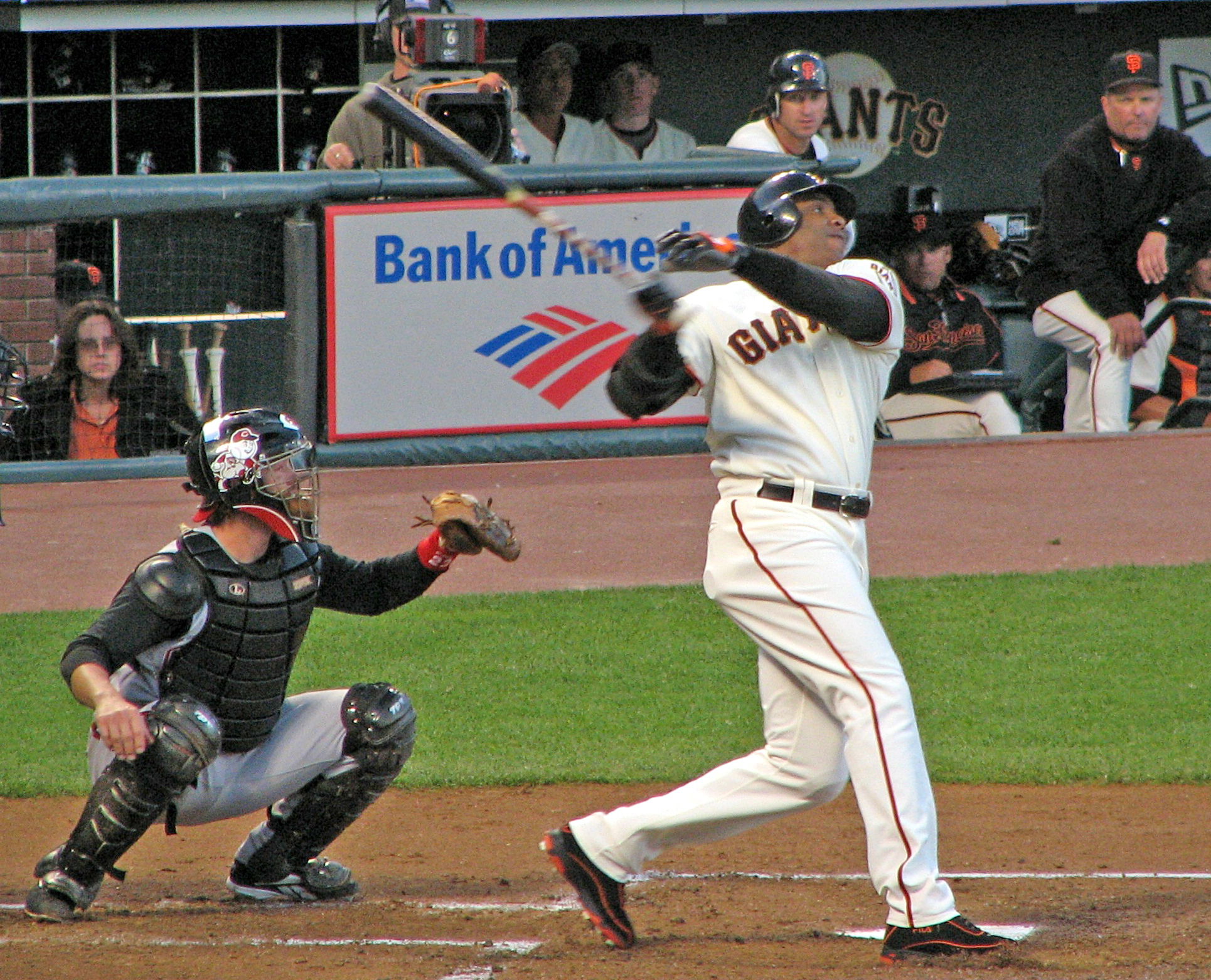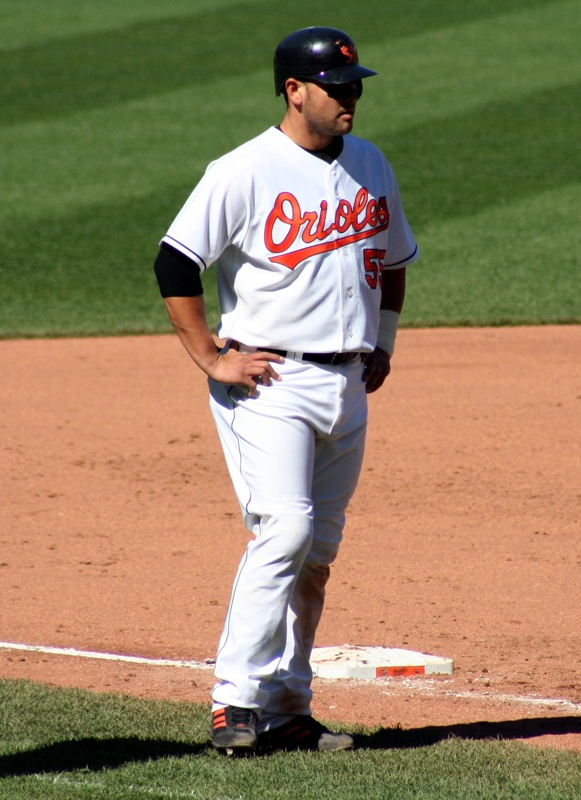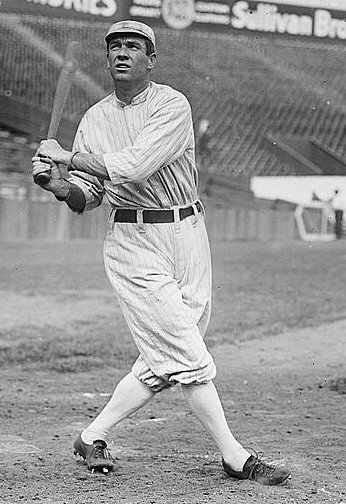|
2001 Caribbean Series
The forty-third edition of the Caribbean Series (''Serie del Caribe'') was held from February 1 through February 6 of with the champion baseball teams of the Dominican Republic, Águilas Cibaeñas; Mexico, Naranjeros de Hermosillo; Puerto Rico, Cangrejeros de Santurce, and Venezuela, Cardenales de Lara. The format consisted of 12 games, each team facing the other teams twice, and the games were played at Estadio General Ángel Flores in Culiacán, Mexico. Summary Final standings * Had to attend family issues and was replaced by coach José López. Individual leaders All-Star team Sources *Bjarkman, Peter. ''Diamonds around the Globe: The Encyclopedia of International Baseball''. Greenwood. Serie del Caribe : History, Records and Statistics(Spanish)Estadísticas Serie del Caribe 2001(Spanish) {{Caribbean Series, state=collapsed Caribbean 2001 February 2001 sports events in North America International baseball competitions hosted by Mexico 2001 in Caribbean spor ... [...More Info...] [...Related Items...] OR: [Wikipedia] [Google] [Baidu] |
Caribbean Series
The Caribbean Series ( Spanish: ''Serie del Caribe'') is an annual club tournament contested by professional baseball teams in Latin America. It is organized by the Caribbean Professional Baseball Confederation. The series is normally played in February, after the various winter leagues have ended their national tournaments. The Dominican Republic has won the most Caribbean Series championships (23), with Tigres del Licey being the most successful team in the tournament's history. The series has been won by 29 teams from seven countries. Only two teams have won the tournament two consecutive years, the most recent being Criollos de Caguas from Puerto Rico in 2017 and 2018. History The competition was the brainchild of Venezuelan baseball entrepreneur Pablo Morales and Oscar Prieto Ortiz, who devised the idea after seeing the success of the Serie Interamericana in 1946, which featured the clubs Brooklyn Bushwicks from the United States, Cervecería Caracas from Venezuela, ... [...More Info...] [...Related Items...] OR: [Wikipedia] [Google] [Baidu] |
Flag Of Puerto Rico
The flag of Puerto Rico (), officially the Flag of the Commonwealth of Puerto Rico (), represents Puerto Rico and Puerto Ricans, its people. It consists of five equal horizontal stripes, alternating from red to white, with a blue equilateral triangle based on the Glossary of vexillology#Flag elements, hoist side bearing a large, sharp, upright, five-pointed star , five-pointed white star in the center. The white star stands for the Geography of Puerto Rico, archipelago and island, the three sides of the triangle for the three branches of the Government of Puerto Rico, government, the blue for the sky and coastal waters, the red for the blood shed by warriors, and the white for liberty, victory, and peace. The flag is List of flag names#M, popularly known as the ''Monoestrellada'' (Monostarred), meaning having wikt:mono-#Prefix , one star, a single star, or a lone star. It is in the Flag families#Stars and Stripes, Stars and Stripes flag family. In September 1868, the Revolution ... [...More Info...] [...Related Items...] OR: [Wikipedia] [Google] [Baidu] |
Runs Batted In
A run batted in or runs batted in (RBI) is a statistic in baseball and softball that credits a batter for making a play that allows a run to be scored (except in certain situations such as when an error is made on the play). For example, if the batter bats a base hit which allows a teammate on a higher base to reach home and so score a run, then the batter gets credited with an RBI. Before the 1920 Major League Baseball season, runs batted in were not an official baseball statistic. Nevertheless, the RBI statistic was tabulated—unofficially—from 1907 through 1919 by baseball writer Ernie Lanigan, according to the Society for American Baseball Research. Common nicknames for an RBI include "ribby" (or "ribbie"), "rib", and "ribeye". The plural of "RBI" is a matter of "(very) minor controversy" for baseball fans:; it is usually "RBIs", in accordance with the usual practice for pluralizing initialisms in English; however, some sources use "RBI" as the plural, on the basis ... [...More Info...] [...Related Items...] OR: [Wikipedia] [Google] [Baidu] |
Home Run
In baseball, a home run (abbreviated HR) is scored when the Baseball (ball), ball is hit in such a way that the batting (baseball), batter is able to circle the bases and reach home plate safe (baseball), safely in one play without any error (baseball), errors being committed by the Defense (sports), defensive team. A home run is usually achieved by hitting the ball over the outfield fence between the foul poles (or hitting either foul pole) without the ball touching the Baseball field, field. Inside-the-park home runs where the batter reaches home safely while the baseball is in play on the field are infrequent. In very rare cases, a fielder attempting to catch a ball in flight may misplay it and knock it over the outfield fence, resulting in a home run. An official scorer will credit the batter with a hit (baseball), hit, a Run (baseball), run scored, and a run batted in (RBI), as well as an RBI for each Base running, runner on base. The pitcher is recorded as having given u ... [...More Info...] [...Related Items...] OR: [Wikipedia] [Google] [Baidu] |
Ramón Hernández
Ramón José Hernández Marin (; born May 20, 1976) is a Venezuelan former professional baseball catcher and current major league staff assistant for the Athletics (baseball), Athletics of Major League Baseball (MLB). He played in MLB with the Oakland Athletics (1999–2003), San Diego Padres (2004–2005), Baltimore Orioles (2006–2008), Cincinnati Reds (2009–2011), Colorado Rockies (2012) and Los Angeles Dodgers (2013). Career Oakland Athletics Hernández made his debut with Oakland on June 29, 1999 as a backup catcher for A. J. Hinch. His steady progress enabled the Athletics to trade Hinch to the Kansas City Royals a year later. With experience, Hernández became known as a catcher who could solidly hit, mentor young pitchers and had steady defense. He earned praise for his defense and game-calling skills with a powerful Pitcher, pitching staff that included Cy Young Award winner Barry Zito, Mark Mulder and Tim Hudson. In 2003, Hernández broke out with his best season ... [...More Info...] [...Related Items...] OR: [Wikipedia] [Google] [Baidu] |
Triple (baseball)
In baseball, a triple is the act of a Batter (baseball), batter safely reaching third base after hitting the ball, with neither the benefit of a fielder's misplay (see error (baseball statistics), error) nor another baserunner, runner being put out on a fielder's choice. A triple is sometimes called a "three-bagger" or "three-base hit". For baseball statistics, statistical and baseball scorekeeping, scorekeeping purposes it is denoted by 3B. Triples have become somewhat rare in Major League Baseball, less common than both the Double (baseball), double and the home run. This is because it requires a ball to be hit solidly to a distant part of the field (ordinarily a line drive or Fly ball (baseball), fly ball near the Foul line (baseball), foul line closest to Right fielder, right field), or the ball to take an irregular bounce in the outfield, usually against the wall, away from a outfielder, fielder. It also requires the batter's team to have a good strategic reason for wanting ... [...More Info...] [...Related Items...] OR: [Wikipedia] [Google] [Baidu] |
Double (baseball)
In baseball, a double is the act of a batter striking the pitched ball and safely reaching second base without being called out by the umpire, without the benefit of a fielder's misplay (see error) or another runner being put out on a fielder's choice. A double is a type of hit (the others being the single, triple and home run) and is sometimes called a "two-bagger" or "two-base hit". For statistical and scorekeeping purposes it is denoted by 2B. Description Typically, a double is a well-hit ball into the outfield that finds the "gap" between the center fielder and one of the corner outfielders, bounces off the outfield wall and down into the field of play, or is hit up one of the two foul lines. To hit many doubles, a batter must have decent hitting skill and power; it also helps to run well enough to beat an outfield throw. Many of the best double hitting batters were revered for high baseball IQ and the ability to slide well and turn a single into an extra-base h ... [...More Info...] [...Related Items...] OR: [Wikipedia] [Google] [Baidu] |
Luis Raven
Luis Alberto Raven Enríquez (born November 19, 1968) is a former Venezuelan professional baseball outfielder. Listed at 6'0" (), 185 lb. (), Raven batted and threw right handed. He was born in La Guaira, Vargas. Raven (rah'-vehn) was a powerful hitter known for his long home runs, but he also struck out frequently and usually posted a low batting average and on-base percentage. Career He spent 19 years in baseball, while playing in the California Angels, Chicago White Sox, Cleveland Indians and Florida Marlins minor league systems. Besides, he played in Mexican, Italian and Taiwanese baseball, as well as in the Venezuelan Professional Baseball League. In 15 minor league seasons, he posted a .288 batting average with 197 home runs and 838 RBI in 1151 games, including 2118 total bases for a .494 slugging average. Raven played from 1991 through 2007 in the Venezuela league, gaining honors as Rookie of the Year in the 1993–1994 season, Most Valuable Offensive Player in 19 ... [...More Info...] [...Related Items...] OR: [Wikipedia] [Google] [Baidu] |
Jolbert Cabrera
Jolbert Alexis Cabrera Ramírez (born December 8, 1972) is a Colombian former professional baseball player. He played in Major League Baseball for the Cleveland Indians (1998–2002), Los Angeles Dodgers (2002–2003), Seattle Mariners (2004), and Cincinnati Reds (2008). Cabrera batted and threw right-handed. He is the older brother of former shortstop Orlando Cabrera. The two played together during the 1997 season while members of the Ottawa Lynx, the Montreal Expos Triple-A affiliate. Professional career Cabrera made his major league debut with the Indians on April 12, 1998, in the only game he played that season. 2001 was Cabrera's best statistical season in Cleveland, as he slashed a line of .261/3/38 with ten stolen bases for the division-winning Indians. A highlight of that 2001 season was in a nationally televised Sunday Night Baseball game on August 5, when Cleveland rallied from a 14–2 deficit in the seventh inning to win 15–14 on Cabrera's broken-bat, walk-off ... [...More Info...] [...Related Items...] OR: [Wikipedia] [Google] [Baidu] |
Hit (baseball)
In baseball statistics, a hit (denoted by H), also called a base hit, is credited to a batting (baseball), batter when the batter safely reaches or passes first base after hitting the ball into fair ball, fair territory with neither the benefit of an error (baseball), error nor a fielder's choice. Scoring a hit To achieve a hit, the batter must reach first base before any fielder can either tag out, tag him with the ball, throw to another player protecting the base before the batter reaches it, or force play, tag first base while carrying the ball. The hit is scored the moment the batter reaches first base safely; if he is put out while attempting to stretch his hit to a double (baseball), double or triple (baseball), triple or home run on the same play, he still gets credit for a hit (according to the last base he reached safely on the play). If a batter reaches first base because of offensive interference by a preceding runner (including if a preceding runner is hit by a batt ... [...More Info...] [...Related Items...] OR: [Wikipedia] [Google] [Baidu] |
Run (baseball)
In baseball, a run is scored when a player advances around first, second and third base and returns safely to home plate, touching the bases in that order, before three outs are recorded and all obligations to reach base safely on batted balls are met or assured. A player may score by hitting a home run or by any combination of plays that puts him safely "on base" (that is, on first, second, or third) as a runner and subsequently brings him home. Once a player has scored a run, they may not attempt to score another run until their next turn to bat. The object of the game is for a team to score more runs than its opponent. The Official Baseball Rules hold that if the third out of an inning is a force out of a runner advancing to any base then, even if another baserunner crosses home plate before that force out is made, his run does not count. However, if the third out is not a force out, but a tag out, then if that other baserunner crosses home plate before that tag out i ... [...More Info...] [...Related Items...] OR: [Wikipedia] [Google] [Baidu] |
Batting Average (baseball)
In baseball, batting average (BA) is determined by dividing a player's hits by their total at-bats. It is usually rounded to three decimal places and read without the decimal: A player with a batting average of .300 is said to be "batting three hundred". If necessary to break ties, batting averages could be taken beyond the .001 measurement. In this context, .001 is considered a "point", such that a .235 batter is five points higher than a .230 batter. History Henry Chadwick, an English statistician raised on cricket, was an influential figure in the early history of baseball. He is credited with creating the modern box score, in 1859, and the practice of denoting a strikeout with a "K". Chadwick wrote in 1869: "In making up a score at the close of the match the record should be as follows:–Name of player, total number of times the first base was made by clean hits, total bases so made, left on bases after clean hits, and the number of times the first base has been made on ... [...More Info...] [...Related Items...] OR: [Wikipedia] [Google] [Baidu] |






